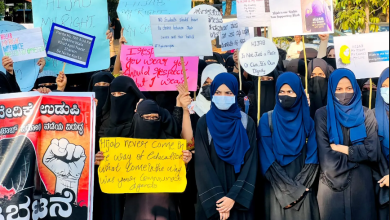Indian SC stays surveys, fresh suits against religious structures

New Delhi,: The Supreme Court of India has restrained trial courts across the country from registering fresh suits, ordering surveys, or passing any effective or final orders with regard to religious character of existing religious structures in already pending suits.
According to Kashmir Media Service, the three-judge Special Bench, led by Chief Justice of India Sanjiv Khanna, passed the order during hearings on a batch of petitions challenging and supporting the constitutional validity of the Places of Worship Act. Justice P.V. It is pertinent to mention that the Indian Places of Worship Act (1991) prohibits the conversion of the religious character of places of worship from their status as of August 15, 1947.
“As the matter is sub judice before this court, we deem it fit to direct that no fresh suits shall be registered or proceedings ordered. In the pending suits, courts should not pass any effective or final orders,” CJI Sanjiv Khanna said. “When a matter is pending before us, is it just and fair for any other court to examine it?” the Bench asked. However, the Bench refused to stay proceedings in 22 suits already pending concerning 10 places of worship, mosques, and dargahs.
The SC’s order means that in pending suits regarding the Gyanvapi mosque dispute, the Shahi Eidgah dispute, the Sambhal Jamia Masjid, the Bhojshala, and the Ajmer Sharif dargah disputes, courts cannot pass any effective or final orders, including those for surveys.
The Bench has asked the Indian government and other respondents to file their replies within four weeks. The next hearing in the case will be held on February 17, 2025.
Many hailed the SC’s decision. In a press release, Jamiat Ulama-i-Hind president Maulana Mahmood Madani welcomed the ruling, emphasizing the importance of enforcing the law to safeguard the country’s unity. He stated, “Those fixated on finding temples beneath mosques are enemies of national unity. Jamiat Ulama-i-Hind has always opposed communalism and urged authorities to shut the doors through which this poison seeps in.” Journalist Saurav Das, on X, praised the decision, stating, “The Supreme Court has defended India’s secular fabric today. CJI Sanjiv Khanna has corrected what CJI Chandrachud allowed—the passing of survey orders by courts—by reversing it and barring courts from issuing such orders.”
The judiciary had faced heavy criticism from journalists, academics, and lawyers, especially after the Gyanvapi judgment, which many believed opened the door for courts with Hindutva leanings to order surveys into the alleged existence of temples beneath mosques. Critics accused the previous SC bench, led by CJI D.Y. Chandrachud, of facilitating such investigations.








